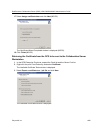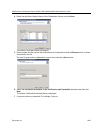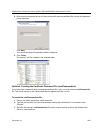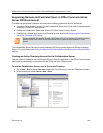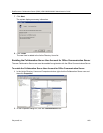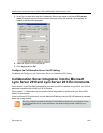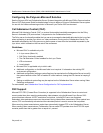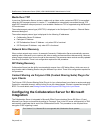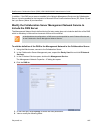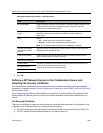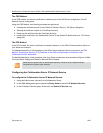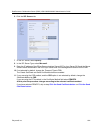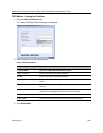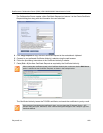
RealPresence Collaboration Server (RMX) 1500/1800/2000/4000 Administrator’s Guide
Polycom®, Inc. 1036
Media Over TCP
In previous Collaboration Server versions, media such as video, audio, content and FECC is transmitted
using the UDP transport protocol. In version 7.7, mediaMedia is automatically transmitted through TCP
when UDP, the default transport protocol, is not available. Media over TCP is supported using the Microsoft
ICE environment.
The media transport protocol type (UDP/TCP) is displayed in the Participant Properties - Channel Status -
Advanced dialog box.
The media transport protocol type is displayed for the following IP addresses:
● Collaboration Server IP Address
● Participant IP Address
● ICE Collaboration Server IP Address - only when ICE is functional
● ICE Participant IP Address - only when ICE is functional
Network Error Recovery
When a short network error occurs, for example 5 seconds, Collaboration Server automatically recovers,
enabling calls in Microsoft Lync to continue the video or audio conference without disconnecting. However,
when a longer network error occurs, the call is disconnected. The presence status mode is correctly updated
from Busy to Available. There is no configuration required for this procedure.
SIP Dialog Recovery
Collaboration Server has the ability to automatically recover from a SIP dialog failure, which can occur in
long duration calls in Meeting Rooms using the Microsoft Lync client. There is no configuration required for
this procedure.
Content Sharing via Polycom CSS (Content Sharing Suite) Plug-in for
Lync Clients
The Polycom CSS (Content Sharing Suite) Plug-in for Lync clients allows Lync clients to receive and send
Content on a separate channel, without having to use the video channel. Content is transmitted using SIP
BFCP. For more details, see Sharing Content via the Polycom CSS Plug-in for Lync Clients.
Configuring the Collaboration Server for Microsoft
Integration
The Collaboration Server is integrated in Microsoft Office Communications Server R2 (Wave 13) and
Microsoft Lync Server environments by setting its Transport Type (in the SIP server configuration) to TLS
and creating a certificate that is sent to the Collaboration Server. This procedure is also required when
encryption of SIP signaling is used.
From Version 7.0.x, Microsoft R1 is not supported with Collaboration Server systems.



